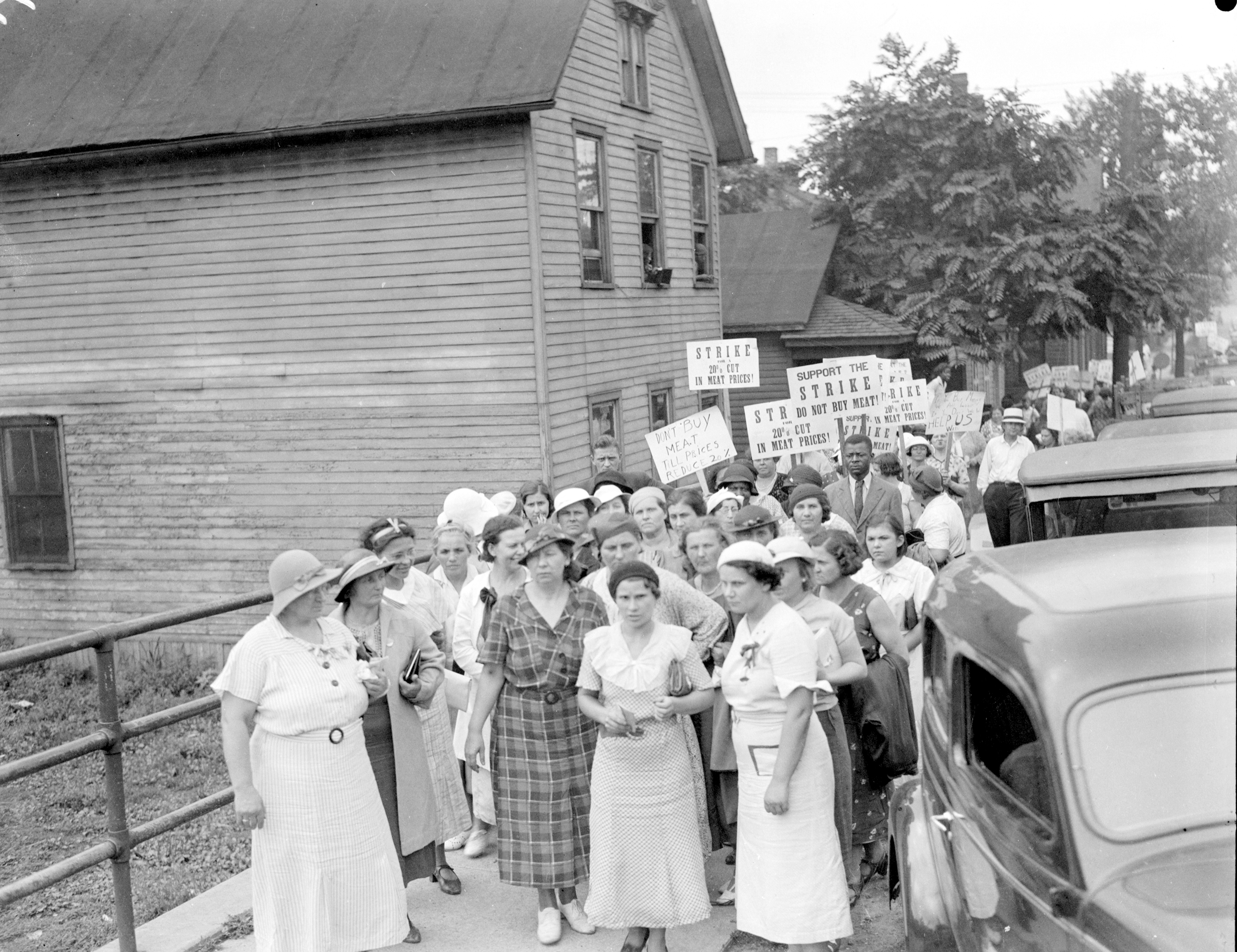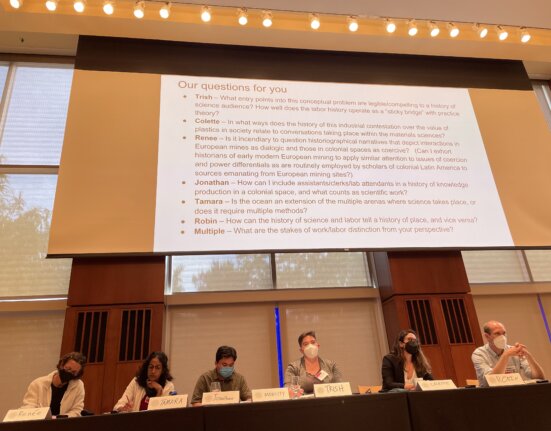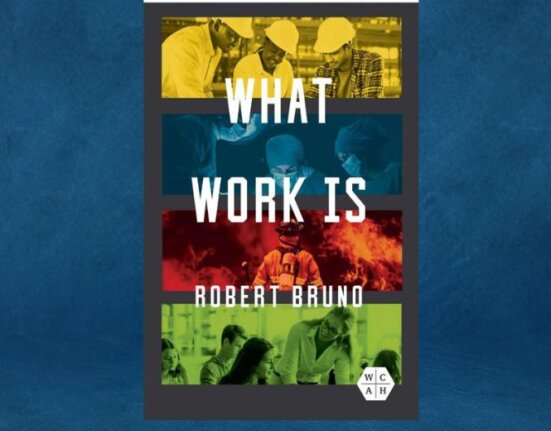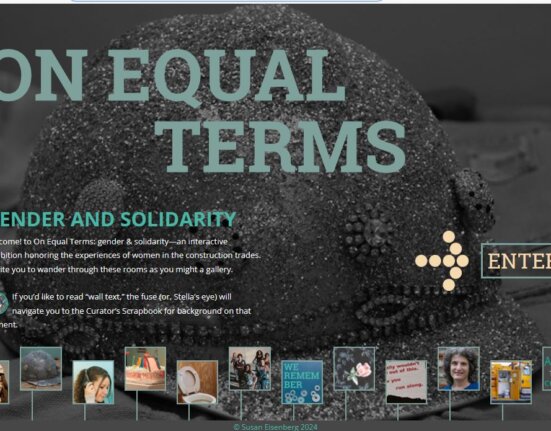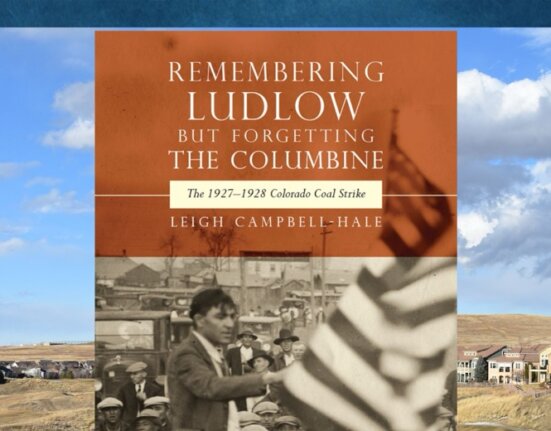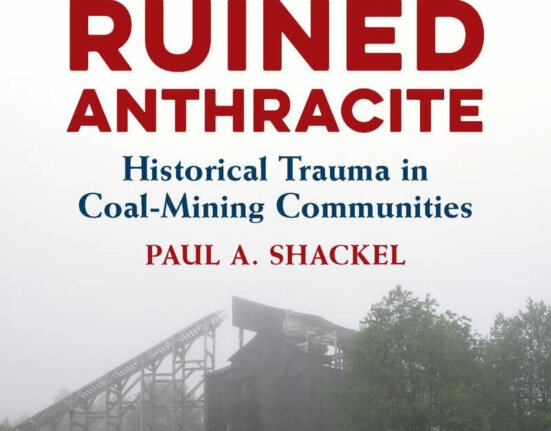Our monthly series on new books in labor and working-class history continues with Emily E. LB. Twarog’s Politics of the Pantry: Housewives, Food, and Consumer Protest in Twentieth-Century America, released today by Oxford University Press. Twarog is an assistant professor of labor studies and American history in the School of Labor and Employment Relations at the University of Illinois at Urbana-Champaign. She also sits on LAWCHA’s board. She answered questions from Jacob Remes.
Is there a character in Politics of the Pantry you’re especially fond of?
Yes, there is. I am very attached to Mary Zuk who appears in the first chapter of the book and I use as an anchor character throughout the remainder of the book. I “met” Mary Zuk when I was in my early days of graduate school at the University of Illinois at Chicago and I immediately fell in love with her. She is so feisty and reminds me a bit of my Babci (grandmother in Polish). There were many times when I felt like this book would never happen, and then I would think about Mary’s story and how desperately I wanted people to know about her – so I guess you could say that she really helped me a great deal as I balanced motherhood, work, and writing. I have a photo of her hanging above my desk at work and I often find myself staring at her and wondering what she thought of her life.
The other woman, who I met much later in the research process, is Mickey DeLorenzo. She is a spitfire and I am so lucky to have had the opportunity to interview her over the phone twice for this book. I hope to be able to organize a book event either on Long Island or in Florida (where she now lives) in the next six months that would feature her and her story. She is a wonderful storyteller and a very genuine person. I also have her picture hanging about my desk.
I read in Esther Peterson’s papers once that she decorated her office photos of inspiring women. I have done the same thing in my office. It reminds me of the important work that historians do in revealing the stories that are buried by the dominant white male narrative.
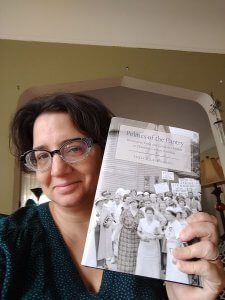
The history of food and food studies are really hot topics right now. What are you hoping that food historians who don’t think of themselves as working-class historians take away from your book? What about vice versa?
I have struggled with defining myself as a certain type of historian – labor historian, women’s historian, etc. I don’t see history in silos, the connections between communities are so intersected I think it should challenge us to think more broadly about the history we are researching and narratives we are trying to share.
As someone who entered a PhD program in History with little history experience as an undergraduate and a life spent working in restaurant kitchens, I knew I wanted to study some aspect of work and the economy. We all need to work – what does that work mean to us as individuals and as communities. Once I was in graduate school, I realized that there was almost no discussion of what happened with the paycheck once it was earned. Was it enough? Who spent it? How did they spend it? Where did they spend it? And, when I went to the consumer history literature, there was no discussion of work and earning. I saw studying housewives as a critical link to bridge the silos – labor, gender, consumer history.
Then, one day in the archives at Wayne State, I found an image that is on page 32 of the book that perfectly encapsulated what I imagined my practice as a historian to be. It was a pencil drawing from a 1945 issue of the UAW Women’s Auxiliaries, Women’s Auxiliary News that put the home at the center of the communities with the workplace, the church, the market, the union hall, and the school all radiating away from the home. This is what I wanted to do as a historian – tell this story. This is what I call “domestic politics” in the book.
So getting back to the original question, I hope that food historians will leave their silo to consider another angle to the story of food in our country. And, perhaps, the stories in Politics of the Pantry will spark another perspective on their work. We need to cross-pollinate more as scholars both within the academy and our research but also within the society as a whole, which I think food historians have done an excellent job doing. This is an area for historians of labor and working-class studies to learn and grow from the work of food historians.
Your book is mostly about food consumers. What was the relationship of your housewives to food workers, whether in the fields, slaughterhouses, or grocery stores? And what do those historical relationships tell us, if anything, about how consumers and workers can build coalitions today?
Correct. My book does focus on consumers – specifically self-defined housewives. Early in my research I began to explore the records of the United Packinghouse Workers of America (UPWA) as well as the United Farm Workers (UFW). Their records were so voluminous that I worried the story of the housewife would be overshadowed by the activism of the UPWA and UFW. I made a conscious decision to limit my research to consumer activism around meat costs. My hope is still to go back into the papers of the UFW and write an article that could build on the research I did for the book. I have so many archival files that did not make it into the book, I probably have enough for a lifetime of writing about food, politics, and activism.
As for grocery stores, I also planned to work with the UFCW to identify older members who were working in the 1960s and 1970s. Every year the union’s locals honor their longtime employees. I think gathering the memories of food protests by grocery store workers would be fascinating. It was not just housewives who were boycotting meat, but also, of course, the UFW and grapes and the butchers who went on strike over contract disputes as well. This is a more long-term project, but it is something that I have been planning for some time.
In the Epilogue of my book I discuss how food affordability and access continues to be a critical issues in the US, even if housewives are no longer picketing butcher shops and grocery stores. For many communities, there are not even grocery stores to picket. I discuss the successful organizing in Detroit by the Detroit Black Community Food Security Network and also cite the work of Monica White, a professor at the University of Wisconsin–Madison who is doing really important research on food security and organizing in African American communities. I also look to food protests outside of the US that look a lot more like the early boycotts in Detroit. Because of global trade agreements and politics, there are whole populations who are starving while their governments and the 1% are reaping the benefits of those trade agreements. These are food scarcity crises that are hidden from the American public by lack of media coverage and our own unwillingness to look beyond our own neighborhoods and circles.
You teach in a labor education department, and we’ve spoken before about how you especially like teaching in the Women of Steel program for women in the USWA. How did teaching women union members shape Politics of the Pantry?
It was really important for me to write a book that non-academics would want to read and maybe even relate to. My work within the labor movement keeps me really grounded from becoming an isolated academic. When I teach labor history, which is often, I incorporate the stories of community and food protests and I am required to talk about it in a way that is relevant to the lives of laborers, electricians, steelworkers, pipefitters, nurses, teachers, and so on. I want to bring the history alive for them.
I won’t lie. While writing the book I was so caught up in the details that I often struggled to craft a story that was engaging in the classroom. Most of the time, I only meet my students one time for a 2-6 hour class. So I don’t have an opportunity to revisit the materials and information I share during the class with my students as you would in a traditional classroom setting. This is probably the most difficult part of my job.
Now that the book is done, I am looking forward to stepping back and using some of the archival materials in my classroom.
What books are you looking forward to catching up on now that you’ve finished your own?
I am a voracious reader of fiction – mostly WWII spy novels, mysteries, and historical fiction. So I will continue with my fiction reading at night.
But I am really excited to just read whatever looks interesting during work hours in my office. This is a rare treat. Since I don’t teach any graduate courses, I don’t have the chance to assign all the latest books and discuss them. When I finished the copy edits for my book, I cleaned off the desk and put all the books back on the book shelf and replaced them with books I have been waiting to read. My current reading list includes a lot of African American and Chicano history as well as biographies and the history of mining in Illinois. Here is a short random list:
- Lauren Araiza, To March for Others: The Black Freedom Struggle and the United Farm Workers
- Ian Haney López, Dog Whistle Politics: How Coded Racial Appeals Have Reinvented Racism and Wrecked the Middle Class
- Mireya Loza, Defiant Braceros: How Migrant Workers Fought for Racial, Sexual, and Political Freedom
- Anthony Chen, The Fifth Freedom: Jobs, Politics, and Civil Rights in the US, 1941-1972
- Alice Kessler-Harris, A Difficult Woman: The Challenging Life and Times of Lillian Hellman
- Jeff Biggers, Reckoning at Eagle Creek: The Secret Legacy of Coal in the Heartland
- Paul M. Angle, Bloody Williamson: A Chapter in American Lawlessness


